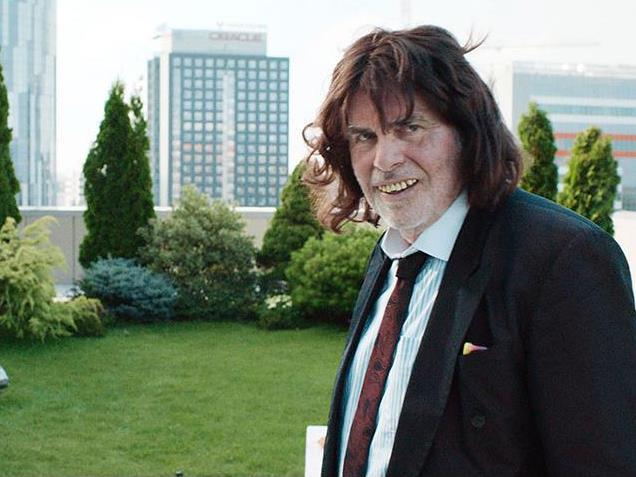Peter Simonischek in Toni Erdmann photograph via Melbourne International Film Festival.
The cinema of today is often the cinema of bloated screen tales, with lengthy trumping concise storytelling. With its 162-minute running time, Toni Erdmann initially appears to fall into the former category; in fact, the bulk of its content appears calculated to inspire such a reaction.Thankfully, when its parts connect together and its hefty duration proves not only justified but necessary, writer/director Maren Ade’s (Everyone Else) third film becomes anything but a prolonged exercise in size over substance.
That said, initially not a lot happens in much of the feature – or, rather, the same few things happen over and over again. The titular character keeps popping up, though he’s an alter ego rather than an actual person. Actually, his name is only mentioned whenever divorced German schoolteacher Winfried Conradi (Peter Simonischek, Sapphire Blue) wants to play with the people he interacts with through the committed practical joke of a constructed persona, with adopting the pseudonym (accompanied by false teeth, sometimes a wig, and always an outrageous backstory) his way of maintaining contact with his adult daughter Ines’ (Sandra Hüller, Amour fou). As she devotes close to every waking hour to her consultant job in Bucharest, he makes any excuse he can for Toni Erdmann to not only cross her path, but add some much-needed brightness and levity to her much-too-serious life.
So it is that Toni interrupts Ines’ routine again and again, with Ade crafting a portrait of one’s actions, the other’s reactions, and everyone else’s growing bewilderment. The first time, in the lobby of her office building, it’s awkward; the second, it’s both uncomfortable and amusing; after that, it becomes bizarre — and then, eventually, an acceptable way of coping with life through performance. The only way to chart the corresponding emotional journey and mirror Ines’ range of responses is through subjecting viewers to the same with a level of patience and repetition that never becomes predictable, as Ade clearly recognises. Toni Erdmann proves so compelling, convincing, and cathartic because it forces audiences chart the same path; in ensuring that they do through an exacting level of immersion, the film couldn’t be more successful in achieving its aim.
As astute as Ade’s story is – as it touches upon workplace stresses, engrained sexism, struggling family connections, and the modern tendency to value professional achievement over personal satisfaction – the German filmmaker isn’t the feature’s only knockout player. Rendering Winifred and Ines as believable protagonists within an intensified but still relatable scenario is as much the stellar Simonischek and Hüller’s doing as their director’s, as is perfecting the movie’s melancholy tone that both celebrates and questions the many factors that lead to Toni Erdmann’s prominence. Theirs aren’t merely committed performances, but effortlessly shifting portrayals that burst with contagious euphoria during an applause-worthy karaoke number, bubble with anxious yet expulsive hilarity during a party, and constantly find happiness within sadness and vice versa. And, while navigating all of the above, both actors still sell the most crucial aspect of their characters: their complex, dysfunctional father-daughter bond.
Indeed, at the heart of Toni Erdmann is a simple concept fleshed out with wisdom, texture, and a welcome embrace of the eccentricities people need, endeavour to avoid, and also can’t escape when trying to get through the oft-banal reality of existence. Partly comic, partly dramatic screen stories about strained parent-child relationships are far from uncommon, as are protracted features, and yet Ade and her cast and crew tackle what seems familiar on paper with the ideal balance of earnestness, authenticity, and knowing absurdity. This heightened humanist approach extends to the movie’s aesthetics, which bring a social realist sheen to material that’s played as realistic and farcical all at once. When it all comes to an end without a moment wasted, length isn’t the only thing Toni Erdmann has earned; applause for its perceptive, poignant, pleasing, and penetrating slice of life that defies expectations – and disarms and delights in the process – is as well.
Rating: 5 stars out of 5
Toni Erdmann
Director: Maren Ade
Germany | Austria, 2016, 162 mins
Melbourne International Film Festival
July 28 – August 14, 2016
Actors:
Director:
Format:
Country:
Release:





